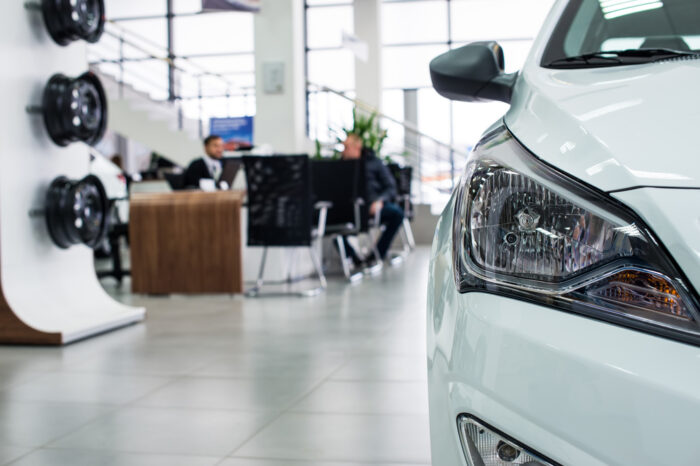
The new plates for 2024 have just been released, with 1 March a big event for car enthusiasts and motoring professionals.
But according to Adam Kent from temporary car insurance provider, Cuvva, it’s also the perfect time to “snag a deal from your car dealership”.
Kent says: “They may be more willing to negotiate on a car that is one plate older”.
He adds that buyers need to remember that older cars have typically already experienced significant depreciation.
This is echoed by James Hosking, managing director of AA Cars, who says dealers are often more flexible on price at the end of a quarter, “so buyers looking to get good value on a car should have plenty of choice”.

Wellness and wellbeing holidays: Travel insurance is essential for your peace of mind
Out of the pandemic lockdowns, there’s a greater emphasis on wellbeing and wellness, with
Sponsored by Post Office
But he says that potential buyers need to be equipped with information about the price of similar vehicles, and must be ready to ask the right questions.
Here are five tips from the experts to drive down the cost of a nearly new or second-hand car:
1) Do your research
Reading up on cars you are interested in can work to your advantage when it comes to haggling on price, Hosking says. It’s worth looking at adverts for similar vehicles for sale, which will also show you if the vehicle you want to buy is competitively priced. Take into account service history, condition and mileage, as these affect a vehicle’s value.
“It’s not just the cost of the car itself you can haggle on, but also the price of your existing car if you’re planning to part-exchange. Dealers can be more open to negotiating on price if they are buying a car. Do your research beforehand to see what your current vehicle might be worth, including looking at its value, for example by using the AA’s free valuation tool,” Hosking adds.
2) Ask the right questions
March can be a good time to negotiate for a deal on a second-hand car, as dealerships expect a flurry of nearly new vehicles to be traded in and need to make room on the forecourt.
Hosking says if you’ve found a car you’re interested in, ask the dealer how long it has been on sale for. If it has been around for a while, the dealer may be more inclined to negotiate on price.
3) Check if there are any problems with the car
Look out for any dents, dings and scratches, as these can all be used to help negotiate money off. Check for scuffs on the alloys and any signs of corrosion, as these could all be costly to sort out, Hosking warns.
Kent adds that buyers shouldn’t underestimate the importance of a thorough inspection.
“Thoroughly review the car’s maintenance history and politely point out any flaws or issues you’ve noticed during the inspection. This can help justify a lower price or give you bargaining power to negotiate repairs or maintenance into the deal,” he says.
Kent adds that buyers should ask for a car history report to learn about any accidents, repairs, or other issues the car may have experienced in the past. “This information can give you leverage during negotiations” he says.
Meanwhile, if a comprehensive vehicle inspection carried out by a professional does alert you to serious issues, it may help you avoid the car entirely, Hosking adds.
4) Don’t be afraid to walk away
It can be tempting to stretch your financial limits to get the exact car you want, but budgeting is important, according to Hosking.
“Come up with a budget you can afford and stick to that. Not only will this rule out cars that are well out of your price range, but it can focus your attention on the most appealing models. Never be afraid to walk away if you can’t get the deal you want,” the AA managing director says.
For Kent, buyers who have a “flexible” mindset may bag themselves a deal.
He says: “Consider being flexible with your preferences. If you’re open to different models, interiors or colours, you may find a better deal on a similar car that meets your needs.”
He adds that, while dealerships offer convenience, extra protection and sometimes added benefits, private sellers are often more flexible when it comes to price, so shouldn’t be ruled out.
5) You don’t have to pay for the car upfront… but you do need insurance
Nearly a third of drivers (31%) still don’t know that they can buy a used vehicle with car finance, according to an AA Car Finance survey. But purchasing a second-hand vehicle with car finance rather than through savings can mean you can “set your sights higher” when looking for a vehicle, Hosking says, as more makes and models become an affordable option.
“However, it’s important to understand how much interest you will pay and that you feel confident you can afford it over the full term of the finance deal,” he warns.
Kent adds that for those buying through a private seller, temporary insurance will allow you to test drive the car legally.
“Once you finally buy your new car, make sure you are covered before you drive away,” he says.
Related: Have you been mis-sold car finance?




